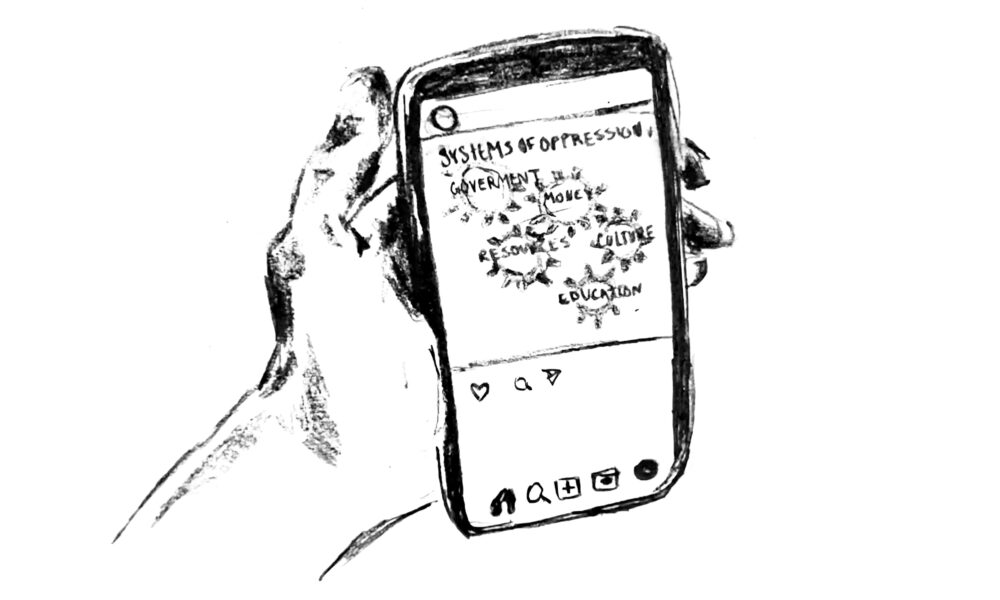Content Warning: Mentions of anti-Black racism and violence.
Last month, an incident in Longueuil—a 20-minute drive from Montreal—shocked me tremendously. On Oct. 2, a 46-year-old woman by the name of Stéphanie Borel threw boiling water at a 10-year-old Black boy, leaving him with second-degree burns on his face, head, torso, and back—injuries that will scar him for life.
The victim told Radio-Canada that he and his friends were walking home from school through a shortcut near Borel’s residence when she specifically targeted him, the only Black child in the group. Borel claimed she assaulted him because he had been knocking on her door for three years. However, this is impossible considering the boy’s family had moved to the neighbourhood in Jan. 2024, and the victim had been attending school near her home for just one month. Despite the premeditated nature of the assault—Borel boiled water in advance and timed the attack—police arrested and released her on the same day.
The incident initially did not receive the attention and outrage from the Quebec public that it deserved until social media accounts like @wsc.montreal and @wscofficial_ posted about the incident on Instagram, fuelling public outrage. Haitian-Canadian activist Renzel Dashington criticized the police’s handling of the case, highlighting the stark double standard in how they treat Black victims and white perpetrators. Joel DeBellefeuille, Executive Director of the Red Coalition, sent a letter to the Longueuil police chief and mayor condemning the delay in justice and stating that it undermines trust between law enforcement and racialized communities.
Public pressure finally led to Borel’s rearrest on Oct. 11 under the “acquisition of new investigative elements,” over a week after the incident. By Oct. 17, police released Borel again under stricter conditions which included staying away from the victim’s home and school. Her court date is set for Jan. 23, 2025.
This horrific incident underscores a troubling reality: Black lives are not prioritized within Quebec’s justice system, which places the burden on Black communities to bring to light the very injustices they face. They are repeatedly compelled to mobilize and fight for their humanity, a burden no community should have to bear. The reliance on social media platforms illustrates how the Quebec justice system maintains this double burden, failing to prioritize the safety, dignity, and justice of racialized people unless forced by public scrutiny. Without public pressure, Borel might have faced no further consequences. Had the victim not been a person of colour, the police’s response likely would have been rapid, with immediate media coverage and decisive legal action. Had a person of colour committed the crime, news outlets would have emphasized both the crime and the perpetrator’s race. This immediate inaction not only shows the racial biases in media coverage between Black and white crimes—as Borel received a light sentence despite online backlash—but also the undervaluation of Black lives, reflecting systemic racial issues within Quebec’s journalism and criminal justice system. This neglect perpetuates the marginalization of Black Canadians, who, in 2023, were the most targeted group of hate crimes based on ethnicity and race reported to the police.
The systemic racism embedded in policing and judicial systems must be actively dismantled through improved training, stricter accountability measures, and reforms that ensure equal treatment for all victims, regardless of race. As students and community members, we hold a unique position of privilege in dismantling these biases. Our access to education and resources entails a responsibility to educate ourselves on systemic racism and to confront our own biases to ensure these are not perpetuated in institutions and beyond. It is important to recognize that this discrimination in Quebec affects everyone—not just marginalized groups. For some people, such as Borel, the effect of systemic racism is beneficial due to white privilege. For others, it can be fatal. Failing to address these issues sends a message that people of colour are not worthy of receiving justice and that responding to the crimes they are victims of is not an urgent priority. Supporting anti-racism initiatives, amplifying stories like this one, and advocating for institutional reforms are essential steps forward. Justice should be inherent, not conditional.









